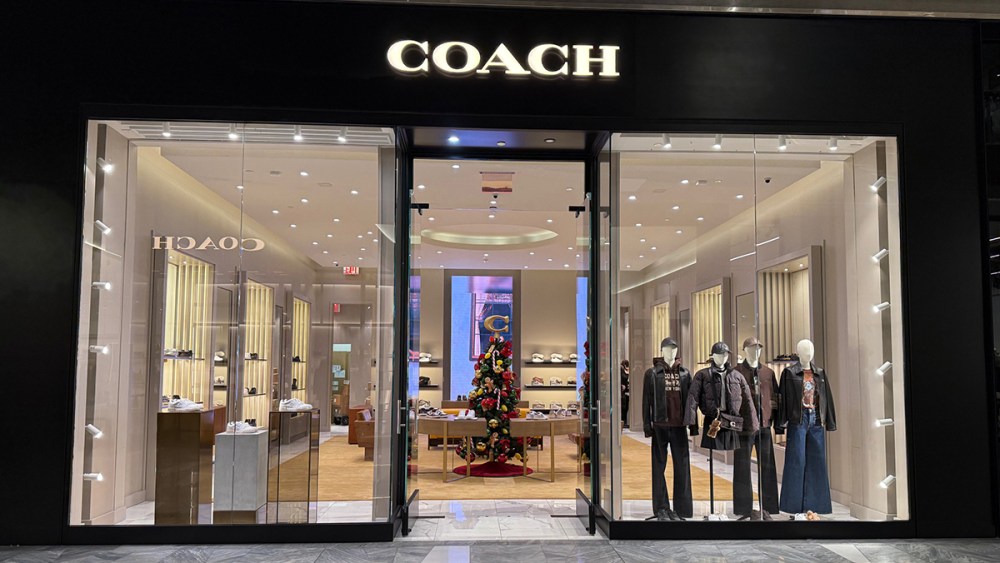At this time in 2024, Ash Harbor’s hardwood whiskey dispensers and ThinkFit’s meal prep containers were 10 percent to 20 percent off. This year, they’re full price.
Shoppers have tariffs to thank for that, according to Dan Peskorse, owner of the parent company that sells the products.
Upstream Brands, which offers merchandise on Amazon.com Inc. and other websites, typically brings in as much as 35 percent of its annual revenue during the holiday season. It sources from countries impacted by the Trump administration’s new levies. So now, a copper herb stripper that last year would have been less than $20, costs about $30 due to US tariffs on metals.
“It just doesn’t make financial sense for us to offer discounts because our costs of goods are so high because of the tariffs,” Peskorse said. “Our concern is that the general public is just a little cash strapped and is pulling back in general. It’s a bit of a perfect storm.”
Companies from upscale handbag brand Coach to wellness-device maker Therabody are among those pulling back on promotions — although not always for the same reasons. Many are citing tariffs and inflation, while others are trying to keep up their cachet with shoppers.
“This is a very strange year for holiday,” said Sonia Lapinsky, leader of fashion retail at AlixPartners, citing “a lot of challenge on the retail front.” While many companies absorbed the first wave of tariffs, now they “just don’t have the room” to offer the the same discounts as past years, she added.
That’s the case at Therabody, which makes a $329.99 massager and $379.99 LED-mask. While many products will be marked down, the company can’t afford to discount as much as last year, Chief Executive Officer Monty Sharma said.
Tariffs have already forced Therabody to raise prices by 5 percent to 7 percent this year. The company is shifting some production out of China.
Moving away from promotions is a risk as discretionary incomes decline amid higher costs across the economy. A survey from PricewaterhouseCoopers LLC shows shoppers are cautious, with consumers’ estimated holiday spending expected to drop 5 percent on average from last year. The decline in holiday budgets is expected to be 23 percent for consumers aged 17 to 28.
Retailers are caught “between a rock and a hard place,” said Neil Saunders, managing director at GlobalData. “On the one hand they want to protect margins, but on the other hand they know that the environment is very competitive and they know the consumer is really looking for those discounts to nudge them into spending,”
He predicted some “quite reasonable” discount rates on Black Friday — but added the promotions will often be on top of earlier price hikes, meaning they’ll be less deep than they appear.
Marshal Cohen, chief retail advisor at research firm Circana, said retailers will offer frequent promotions this holiday season, but deals won’t be as deep as in past years. Companies aren’t ordering as many goods, he added, which is an attempt to avoid overstocking and subsequent profit-busting markdowns.
“They’d rather sell out than sell off,” he said.
Tariffs aren’t the only reason retailers are scaling back promotions. Coach wants to make sure its products seem desirable enough to be sold full price.
“While promotional activity continues in parts of the market, we’ve deliberately moved away from deep discounting over the past several years,” Coach CEO Todd Kahn told Bloomberg News. The label is betting it can drum up interest by offering new merchandise and exclusive early access to products.
Nike Inc., Levi Strauss & Co., and Ralph Lauren Corp. have adopted similar strategies that look to reduce or phase out promotions. The idea is to keep their products exclusive and hype-worthy, and discounts can imply that a brand’s merchandise isn’t in demand. Luxury companies in particular are loath to offer markdowns.
Shoppers will still be hunting for doorbusters, of course. US consumer sentiment hit a near-record low in the University of Michigan’s preliminary reading for November, with people increasingly concerned about their job prospects and higher prices.
“I feel like a lot of things I’m not going to want to pay full price for,” Olivia Decho, a 27-year-old dentist in New York City, said on her holiday shopping. “I’m really only going to go for it if they do have a big discount,” she added.
By Lily Meier
Learn more:
US Consumer Sentiment Declines to Near Lowest on Record
The University of Michigan’s preliminary November sentiment index dropped 3.3 points to 50.3, just above a June 2022 reading of 50 that was the weakest in its data back to 1978.


